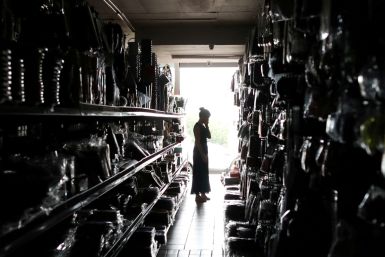Operation Vulindlela's Second Phase To Focus On Stabilizing Local Governments

South Africa's Operation Vulindlela has moved to its second phase, which will focus on improving local government performance to tackle immediate problems with electricity, water, and other essential services.
Operation Vulindlela is a joint effort by the Presidency and National Treasury to speed up reforms and help the economy recover.
Deputy Minister of Finance David Masondo highlighted at the Old Mutual Thought Leaders Forum on Tuesday that without basic services, businesses struggle to operate and investors are hesitant to invest.
"The second new frontier of reform is to address spatial inequality through housing, transport, and urban policy that turns our cities into dynamic centers of economic activity," Masondo said, SA News reported.
He also mentioned that, in the long run, the government plans to review how local governments are structured and funded to make sure municipalities are financially stable and able to run effectively.
"The ultimate objective should be to balance the need for truly local government that is responsive to the needs of a community, with the need for economies of scale in the delivery of services such as water and electricity," he said.
He added, "However, none of the challenges facing local government will be addressed if we do not ensure that capable and qualified people are appointed to municipal administrations. The number of people employed in local government has significantly grown since 2006, without a corresponding improvement in outcomes."
He noted that corruption and favoritism in hiring senior managers, along with political interference, have caused instability and loss of expertise in local government. To improve local government, they plan to tighten rules and oversight on hiring senior managers and shield the administration from unnecessary political influence.
The minister mentioned that the next big area of reform is to tackle spatial inequality by improving housing, transportation and urban policies to make cities more active economic hubs.
High transportation costs are keeping millions of South Africans away from job opportunities, creating issues in the job market and preventing job creation. The poorest households spend over 37% of their income on transport.
To address this, the government plans to use housing programs to help people live closer to job opportunities instead of building homes on the outskirts of cities, as per the deputy minister.
This will involve making public land available for social housing and revising regulations to encourage investment in affordable housing in urban areas.
The minister noted that South Africa is lagging behind its peers when it comes to effective digital transformation strategy. Hence, Operation Vulindlela will collaborate with the relevant departments to create a detailed plan for digital transformation.
This plan will focus on digital payments, making different systems work together and integrating data to digitize services. It will also encourage innovation, bring millions of South Africans into the digital economy and improve access to services.
Earlier this year, Finance Minister Enoch Godongwana said in a panel discussion at the World Economic Forum (WEF) Annual Meeting that South Africa is committed to bringing structural reforms in the areas of electricity, infrastructure, water and logistics to boost the country's economy.
He noted that these structural reforms are being driven by Operation Vulindlela.
© Copyright 2025 IBTimes ZA. All rights reserved.


















